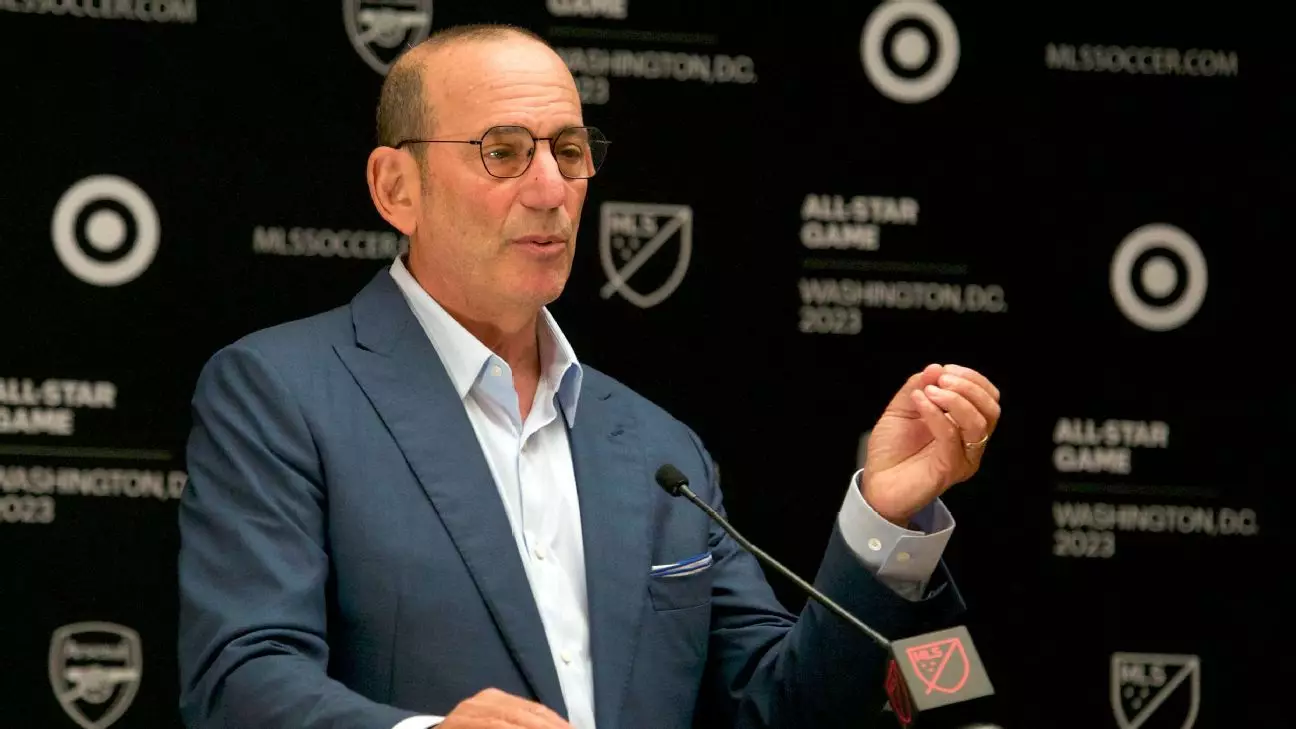The landscape of global football is ever-evolving, and the complexities surrounding player welfare, commercial interests, and an increasingly congested calendar are reaching a boiling point. Recent statements by Major League Soccer (MLS) President Don Garber and LaLiga President Javier Tebas shine a light on the pressing need for reform in how the sport is organized at both national and international levels. A critical examination of their comments, especially in context with the current lawsuit before the European Commission, will uncover the implications of these challenges on the broader football environment.
The Quandary of Fixture Congestion
Garber’s caution about the potential oversaturation of football due to the introduction of the expanded 32-team Club World Cup reflects a growing consensus among players, clubs, and leagues. The ever-expanding list of competitions, such as an enlarged UEFA Champions League and FIFA’s upcoming 48-team World Cup, has exacerbated an already busy calendar. With top players voicing discontent about the relentless schedule—some even threatening to strike—there’s a palpable urgency to address these concerns.
Compounding this issue is the lack of synchronization among leagues worldwide. The simultaneous scheduling of the Club World Cup and Concacaf’s Gold Cup, slated for the summer of 2025, raises serious questions about player fatigue and readiness. As Garber noted, there is a pressing need for governing bodies to engage in collaborative discussions on how to streamline the calendar to alleviate the burden on athletes. Without meaningful engagement and data-backed strategies guiding these discussions, there is a risk that good intentions may not translate into actionable reform.
The recent antitrust lawsuit filed by European leagues, FIFPRO Europe, and LaLiga against FIFA regarding its international match calendar highlights the growing dissatisfaction among stakeholders. It serves as a critical intervention to mitigate what many see as FIFA’s overreach. Garber’s observation that “sometimes it takes a little disruption to get everybody to sit at the same table” resonates with the sentiment that contentious issues often necessitate conflict to drive change.
However, one must ponder whether regulatory bodies possess the necessary will and authority to implement effective changes. While the European Commission explores the lawsuit, the outcome could either pave the way for a more sensible football calendar or deepen divisions among stakeholders. The onus lies on FIFA, regional governing bodies, and leagues to negotiate a collaborative framework that prioritizes athlete welfare while maintaining commercial viability.
The calls for reducing the number of games, as echoed by former football stars like Gerard Piqué, open the doorway to a reimagined structure for leagues. Piqué’s suggestion of adopting smaller leagues—moving from 20 teams to 16—reinforces a systemic shift towards preserving the integrity of player health and performance. It’s a radical proposition that addresses not just the congested schedule but also promotes a more competitive league environment by minimizing the number of fixtures.
Envisioning an innovative calendar could also promote player investment in long-term health and wellness. If leagues respond to these insights by reevaluating their structures, it could result in a more sustainable model that aligns with contemporary players’ aspirations and well-being. Galvanizing global support for such changes might prove challenging, yet it is imperative for the collective future of football.
As Garber noted, the responsibility of reform lies with various football organizations globally. Each body must contribute to a dialogue aimed at reforming the football calendar to prioritize players’ health and commercial sustainability. It cannot be overstated that collaboration is pivotal to addressing the challenges that threaten the current structure of the sport.
With players vocalizing their concerns and legal avenues being explored, the potential for substantial change is burgeoning. Whether the forthcoming Club World Cup and associated competitions can be accommodated without sacrificing player welfare remains undecided. However, the growing clamor for change may well deter the sport from the brink of an avoidable crisis and lead to a more harmonious future for global football.
